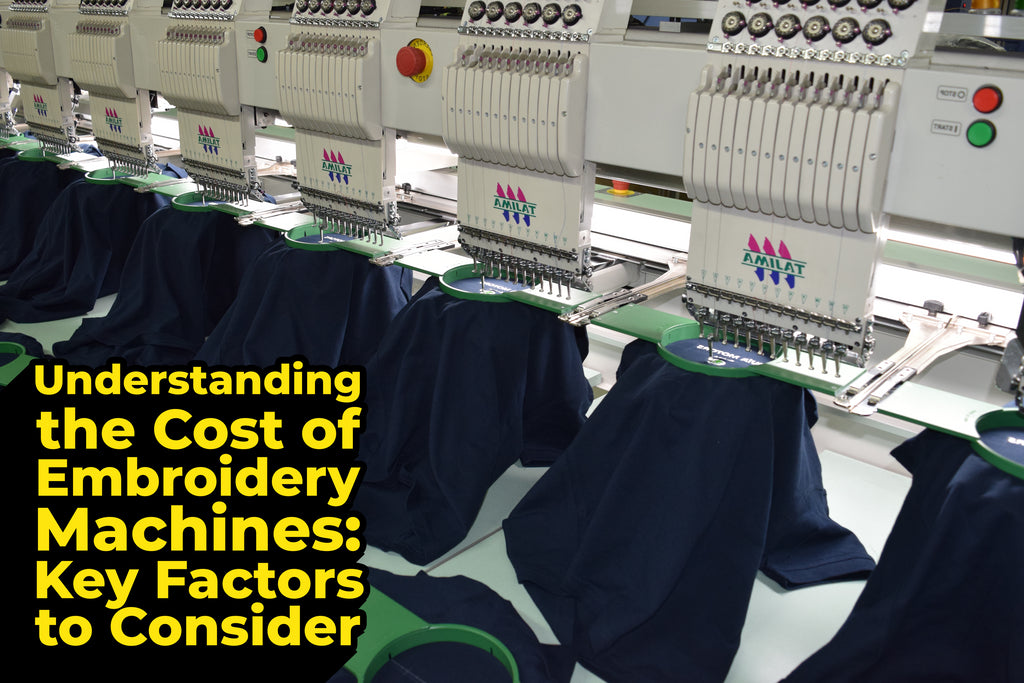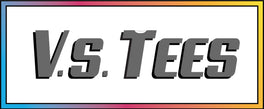Understanding the Cost of Embroidery Machines: Key Factors to Consider
Posted by ARTEMIO NERVEZ JR

Embroidery machines can be a significant investment for hobbyists, small business owners, and large-scale manufacturers. Understanding the various factors that influence the cost of these machines can help you make an informed decision. Here's a breakdown of the key factors to consider when evaluating the cost of an embroidery machine.
1. Type of Embroidery Machine

There are different types of embroidery machines designed to meet various needs:
- Single-Needle Machines: Ideal for beginners and hobbyists, these machines are generally more affordable and easier to use. Prices typically range from $300 to $1,500.
- Multi-Needle Machines: Suitable for more complex designs and higher efficiency, these machines can handle multiple threads at once. Prices range from $1,500 to $10,000 or more.
- Commercial Machines: Designed for high-volume production, these machines offer advanced features and robust performance. Prices can start at $10,000 and go up to $30,000 or higher.
2. Brand and Model
Brand reputation and model features play a significant role in the pricing of embroidery machines. Renowned brands like Brother, Janome, and Bernina are known for their quality and durability, often commanding higher prices. Newer models with advanced features such as touch screens, USB connectivity, and built-in designs can also add to the cost.
3. Features and Capabilities

Advanced features can significantly influence the cost of an embroidery machine:
- Embroidery Area Size: Larger embroidery areas allow for bigger designs and more versatility. Machines with larger embroidery fields tend to be more expensive.
- Stitch Speed: Faster stitch speeds improve productivity, which is crucial for commercial use. High-speed machines generally come at a premium.
- Built-in Designs and Editing Functions: Machines with a wide range of built-in designs, editing capabilities, and the ability to import custom designs can be pricier.
4. Software and Accessories
Embroidery machines often require specialized software for creating and editing designs. The cost of this software can vary widely, from basic programs included with the machine to advanced software that can cost several hundred dollars. Additionally, accessories such as hoops, threads, and stabilizers can add to the overall investment.
5. Maintenance and Support

Consider the long-term costs associated with maintaining your embroidery machine. Reliable customer support, warranty options, and the availability of spare parts can impact the overall value. Machines from well-established brands might come with better support and service options, which can be crucial for maintaining productivity and avoiding downtime.
6. Usage Needs
Your specific usage needs will also determine the appropriate machine and its cost:
- Hobbyist vs. Professional Use: Hobbyists prioritize affordability and ease of use, while professionals focus on advanced features and durability.
- Volume of Work: High-volume production requires machines that can handle continuous use without compromising performance, often leading to higher costs.
Conclusion:
When choosing an embroidery machine, it's essential to consider these key factors to find the best fit for your needs and budget. By understanding the different types of machines, their features, and additional costs, you can make a well-informed decision that will serve you well in your embroidery endeavors.
At VS Tees, investing in the right embroidery machine can significantly boost your creativity, productivity, and overall project satisfaction. Take the time to thoroughly research and compare your options to ensure you get the best value for your investment.





